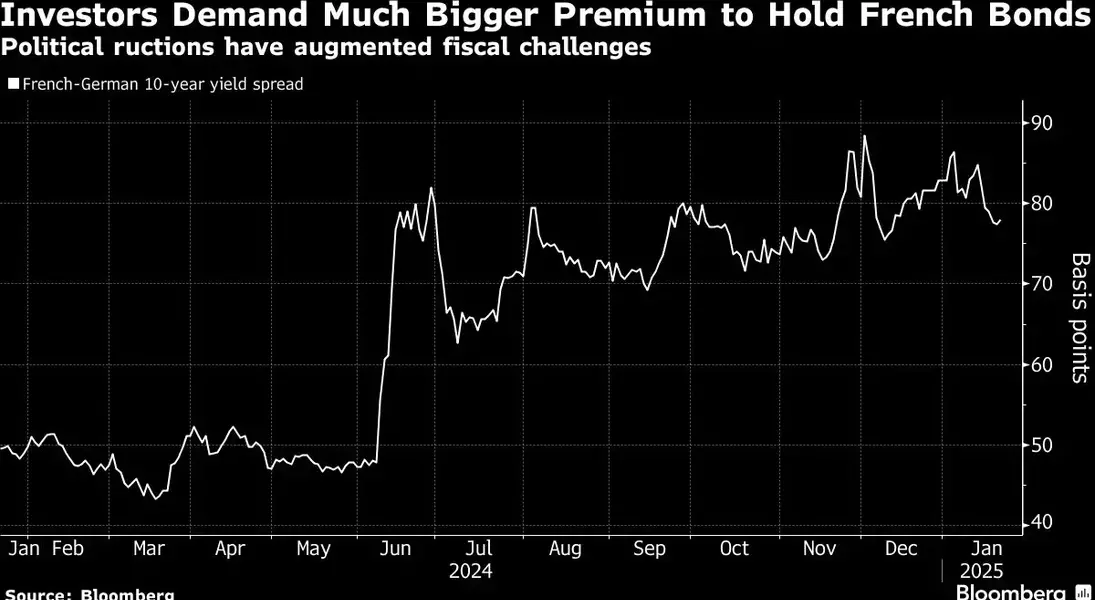
The French government's recent syndicated bond issuance has garnered unprecedented interest from investors, reflecting a mix of confidence and strategic timing. The €10 billion note, set to mature in 2042, received orders totaling over €134 billion, marking a record-breaking response. This surge in demand comes as the new administration seeks to bolster its political standing to push forward critical budget reforms. Investors appear undeterred by the recent political upheaval, with the bond pricing at a competitive rate, just eight basis points above comparable securities.
France's financial landscape has been volatile over the past six months, with borrowing costs rising sharply due to concerns about political stability. The previous government's collapse, triggered by its inability to secure support for a budget that included significant spending cuts, left the country in a state of uncertainty. Prime Minister Francois Bayrou now faces similar challenges but has managed to navigate initial obstacles, surviving a no-confidence vote last week. Despite these hurdles, Bayrou's finance minister has secured backing from Brussels for a deficit-reduction plan aimed at narrowing the deficit to 5.4% of GDP this year. While less ambitious than the previous target, it aligns with the broader goal of meeting the EU's 3% limit by 2029.
The successful bond sale underscores the resilience of investor confidence in France's economic policies, even amidst political turbulence. The narrowing gap between French and German yields suggests that markets are beginning to stabilize. Syndicated debt offerings, though typically more costly than auctions, offer governments a rapid means to raise substantial funds while broadening their investor base. This latest issuance not only demonstrates the government's ability to mobilize financial support but also signals a positive outlook for future economic reforms and stability.
